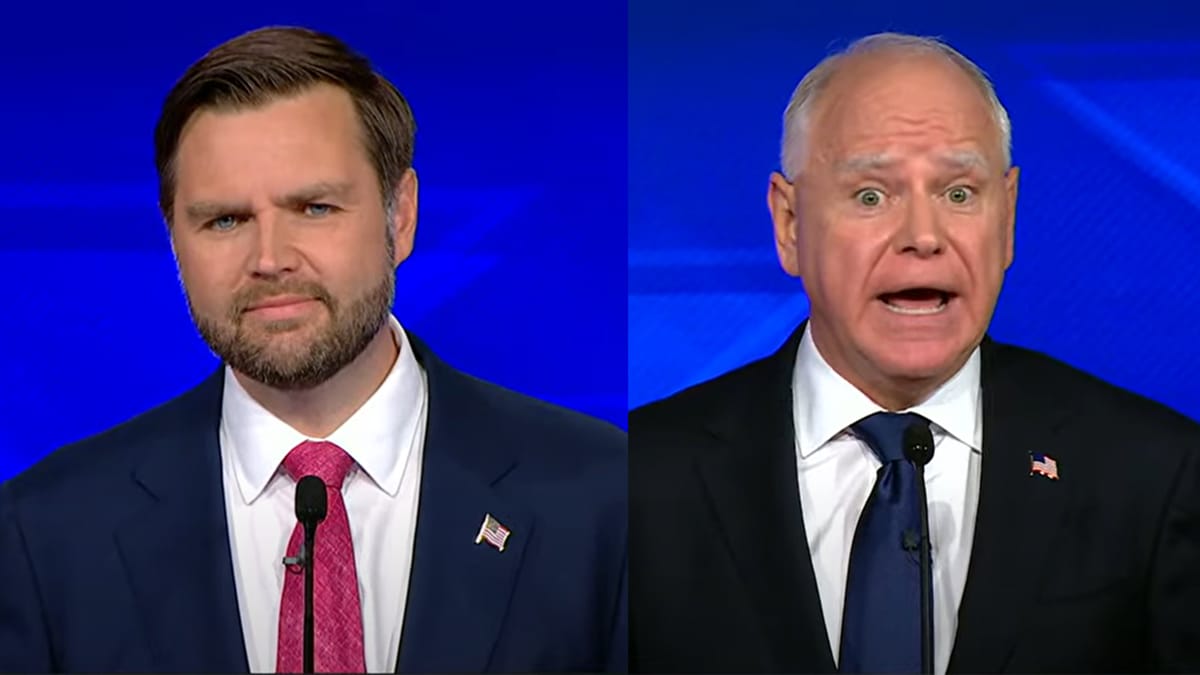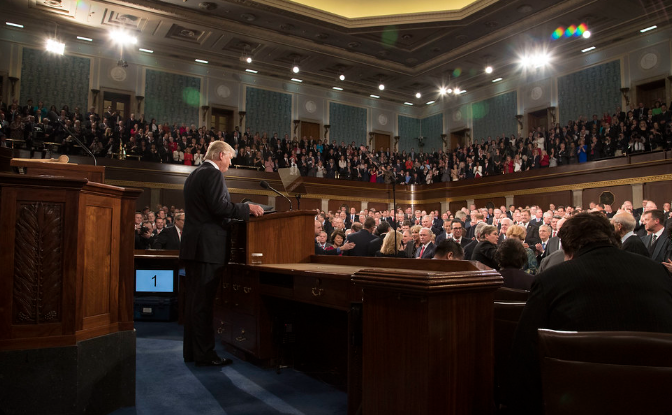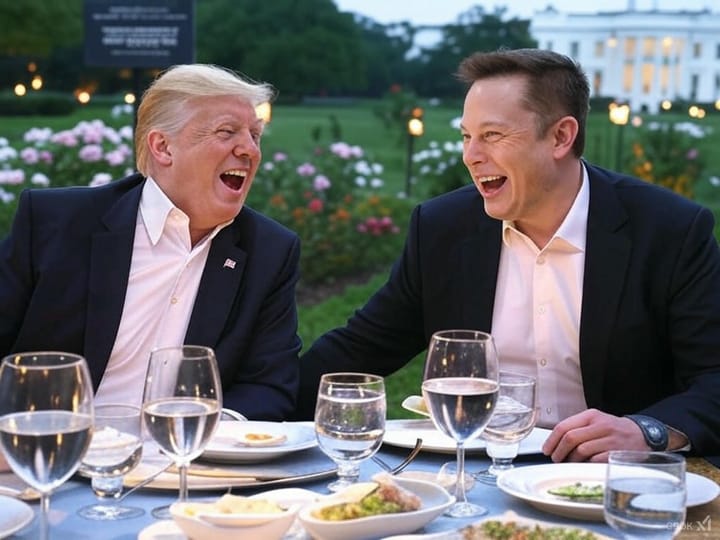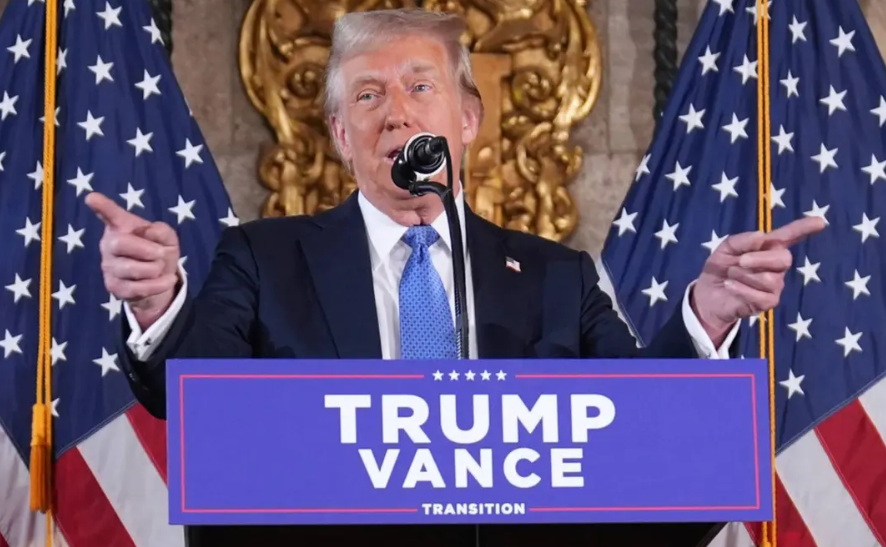JD Vance Dominates Debate with Sharp Fact-Checking and Bold Vision for America's Future
JD Vance commanded the stage in the Vice Presidential debate, delivering sharp fact-checks and presenting a bold vision for America’s future.

The vice-presidential debate between Ohio Senator JD Vance and Minnesota Governor Tim Walz, held in New York City, was billed as a critical discussion on the future of America. From foreign policy to the economy and reproductive rights, the candidates tackled significant issues, but it was JD Vance who came out on top. His poised, confident demeanor and sharp, fact-based rebuttals set him apart, while Walz struggled with missteps and defensive energy. The debate, which stood in stark contrast to the fiery and often chaotic presidential debates, was marked by moments of professionalism, yet it was clear that Vance won the night.
Vance’s Poised Command
JD Vance walked onto the stage calm and prepared, embodying a level-headed confidence that immediately set the tone for his performance. When addressing the crucial issue of foreign policy, Vance quickly asserted his stance on supporting America’s allies without hesitation. Regarding the question of whether Israel should launch a preemptive strike on Iran, Vance gave a thoughtful response, saying, "It is up to Israel what they think they need to do to keep their country safe, and we should support our allies wherever they are when they’re fighting the bad guys."
This set the tone for the rest of Vance’s answers throughout the debate: solutions-focused, direct, and concise. Vance didn’t just parrot party lines—he expanded on his vision for America with clarity and specifics. On the issue of climate change, Vance tackled the topic head-on by questioning the current administration’s environmental policies. "If you believe carbon emissions are the problem, the best thing we can do is reshore American manufacturing and produce more energy here because we are the cleanest economy in the entire world," he stated, taking aim at what he called "Kamala Harris’s backward policies that have exported dirty energy to countries like China."
Whereas Walz leaned heavily on emotional appeals and critiques of Donald Trump, Vance remained focused on solutions and outcomes. "Donald Trump recognized that for people to fear the United States, you needed peace through strength," Vance argued, highlighting the former president’s foreign policy successes. "Iran has received over $100 billion in unfrozen assets thanks to the Kamala Harris administration. What do they use that money for? They use it to buy weapons that they’re now launching against our allies."
Walz Struggles and Stumbles
Tim Walz, in contrast, appeared nervous and defensive, frequently veering off-topic and lashing out against Trump instead of addressing the questions directly. His most glaring misstep came during a discussion on gun violence, where he bizarrely said, “I’ve become friends with school shooters. I’ve seen it.” This awkward comment, which seemed more like a misstatement, left the audience confused and did little to inspire confidence in his leadership.
Throughout the night, Walz’s tendency to pivot away from direct answers and instead attack Trump and Vance became a recurring theme. When asked about climate change, Walz quickly shifted into an attack on Trump’s environmental policies, claiming, “Donald Trump called it a hoax and joked that these things would make more beachfront property to be able to invest in.” He failed to provide any substantial rebuttal to Vance’s well-laid-out argument for investing in American energy.
Another significant moment came when Walz, in a discussion about reproductive rights, tried to cast JD Vance as an extremist on abortion. Walz mentioned tragic cases of women suffering due to restrictive abortion laws in states like Texas, but when it came to defending his own policies, he faltered. Vance seized the moment, pushing back with a critical question: "As I read the Minnesota law that you signed into law, the statute says that a doctor who presides over an abortion where the baby survives is under no obligation to provide lifesaving care. That is, I think, fundamentally barbaric." Walz, visibly flustered, struggled to explain the nuances of the law, resorting to saying, "That’s not what the law says," without further elaboration.
Vance’s Unflinching Fact-Checking
One of the most memorable moments of the debate came when Vance called out not only his opponent but also the moderators for inaccuracies. When the topic turned to housing costs, Walz criticized Vance’s stance on immigration, claiming that deportations wouldn’t solve the housing crisis. Vance countered with a sharp fact-check, stating, “There’s a Federal Reserve study that drills down on the connection between increased levels of migration, especially illegal immigration, and higher housing prices. We’ll put it up on social media after the debate.” Vance’s confidence in his facts and willingness to challenge the moderators set him apart as a candidate who isn’t afraid to stand his ground and back up his claims.
Later, when discussing the COVID-19 pandemic, Vance fact-checked Kamala Harris’s handling of government censorship during the pandemic. "Kamala Harris wants to use the power of government and big tech to silence people from speaking their minds," he said, countering Walz’s claims that the government’s actions were in the public’s best interest. "Criticizing the policies of the government is the right of every American. This is about the First Amendment—the most sacred right under our democracy."
Vance didn’t stop there. On the issue of election integrity, Walz accused Trump of undermining democracy by refusing to accept the results of the 2020 election, but Vance countered by pointing out that Democrats, including Hillary Clinton, had questioned election results in the past. "Hillary Clinton in 2016 said that Donald Trump had the election stolen by Vladimir Putin because of $500,000 worth of Facebook ads," Vance said. "If we want to say that we need to respect the results of the election, I’m on board, but let’s be clear—this is not just a problem that Republicans have had."
Professionalism and Civility
While both candidates maintained a certain level of professionalism throughout the night, Vance clearly dominated in the area of effective communication. Even in moments of disagreement, he maintained a calm and measured tone, contrasting with Walz’s often defensive and hurried responses. When the debate shifted to one of the most heated topics—gun violence—Vance again took the high road, expressing empathy for the victims of shootings while pointing to systemic issues that must be addressed. "We have to make our schools safer," he said, arguing that more security measures need to be in place, though acknowledging the difficult emotional weight parents face. "It’s not something any of us want, but we have to be realistic about what needs to be done."
On multiple occasions, Vance and Walz actually found common ground, particularly on the subject of housing and immigration. Vance acknowledged that some of Walz’s points were "halfway decent" but repeatedly stressed that the solutions offered by Kamala Harris have done little to improve the lives of ordinary Americans. "She’s had 1,400 days in office. She’s had the opportunity to fix these problems, and she hasn’t," Vance pointed out. This ability to contrast Harris’s record with Trump’s accomplishments allowed Vance to maintain a commanding narrative throughout the debate.
Both candidates closed the debate with a handshake, a gesture that echoed the respectful tone that had pervaded the evening despite their ideological differences.
Walz’s Defensive Posture
Tim Walz, while energetic, came across as jittery and often on the defensive. He repeatedly brought up Trump in almost every response, creating a reactive rather than proactive stance. In one of the more telling moments, when pressed about the state of the economy, Walz defaulted to personal attacks. "Donald Trump can’t even tell the truth about his taxes. How is that fair to everyday Americans?" he asked, seemingly missing the point of the question.
Walz’s response on housing policy lacked the specifics and clarity needed to make a compelling argument. When challenged by Vance on the impact of illegal immigration on housing costs, Walz diverted the conversation, stating, “Pass the bill,” without offering a real solution. His stance often relied on reiterating problems without offering actionable steps, which paled in comparison to Vance’s direct answers.
A Commanding Win for Vance
In the end, JD Vance walked away from this debate as the undeniable victor. His combination of clear, concise answers, fact-based arguments, and calm demeanor made him appear as a steady and capable leader. While Tim Walz had moments where he shone, particularly when speaking from personal experience, his nervous energy and tendency to deflect detracted from his overall performance.
Vance’s professionalism, combined with his willingness to call out misinformation—even from the moderators—gave him a significant edge. "We can get back to an America where truth matters," Vance asserted confidently, driving home his final point in the debate. This closing statement encapsulated his approach throughout the night—fact-checking where necessary, sticking to the issues, and staying laser-focused on the policies that he believes can make a tangible difference for everyday Americans.





Comments ()